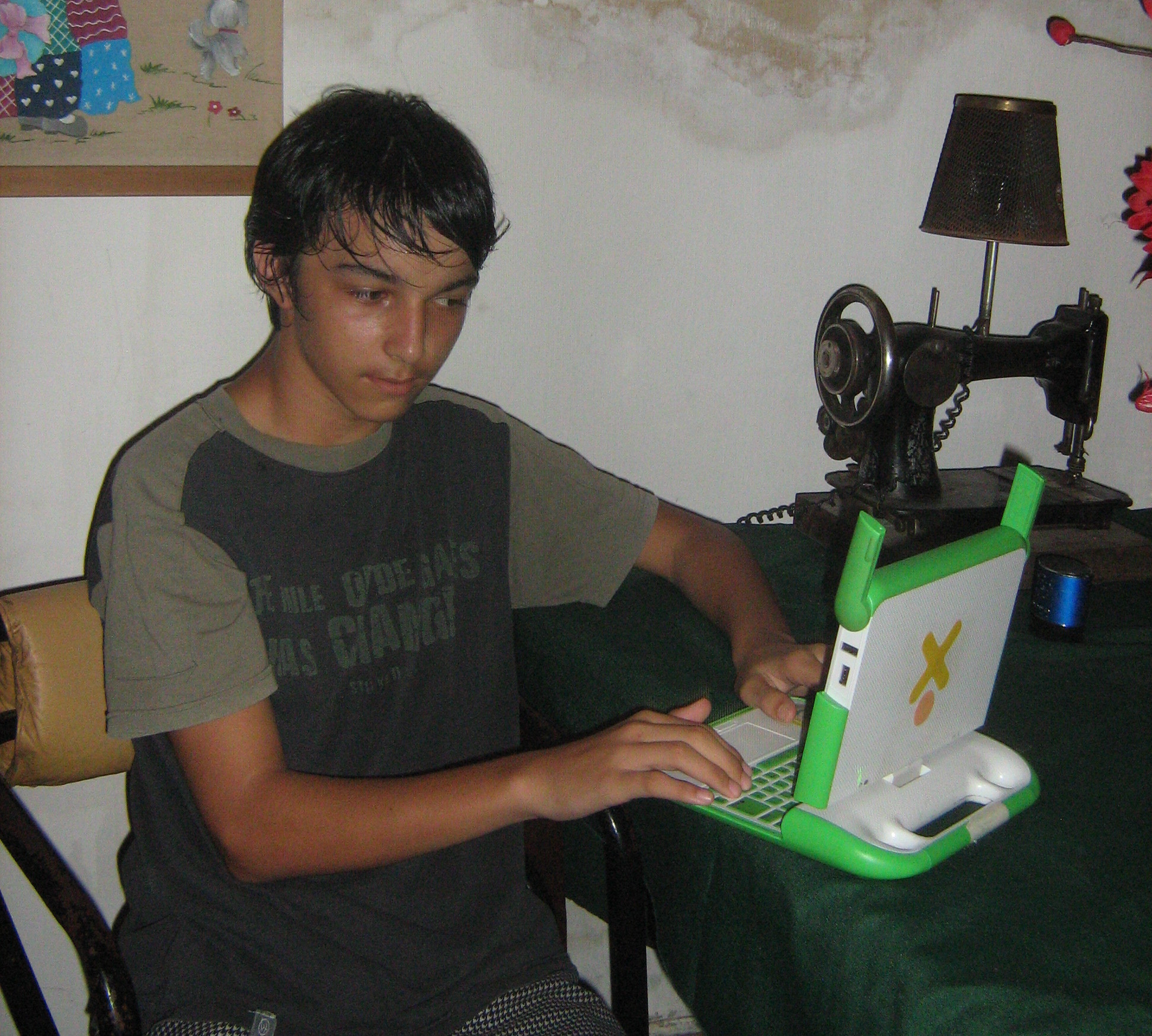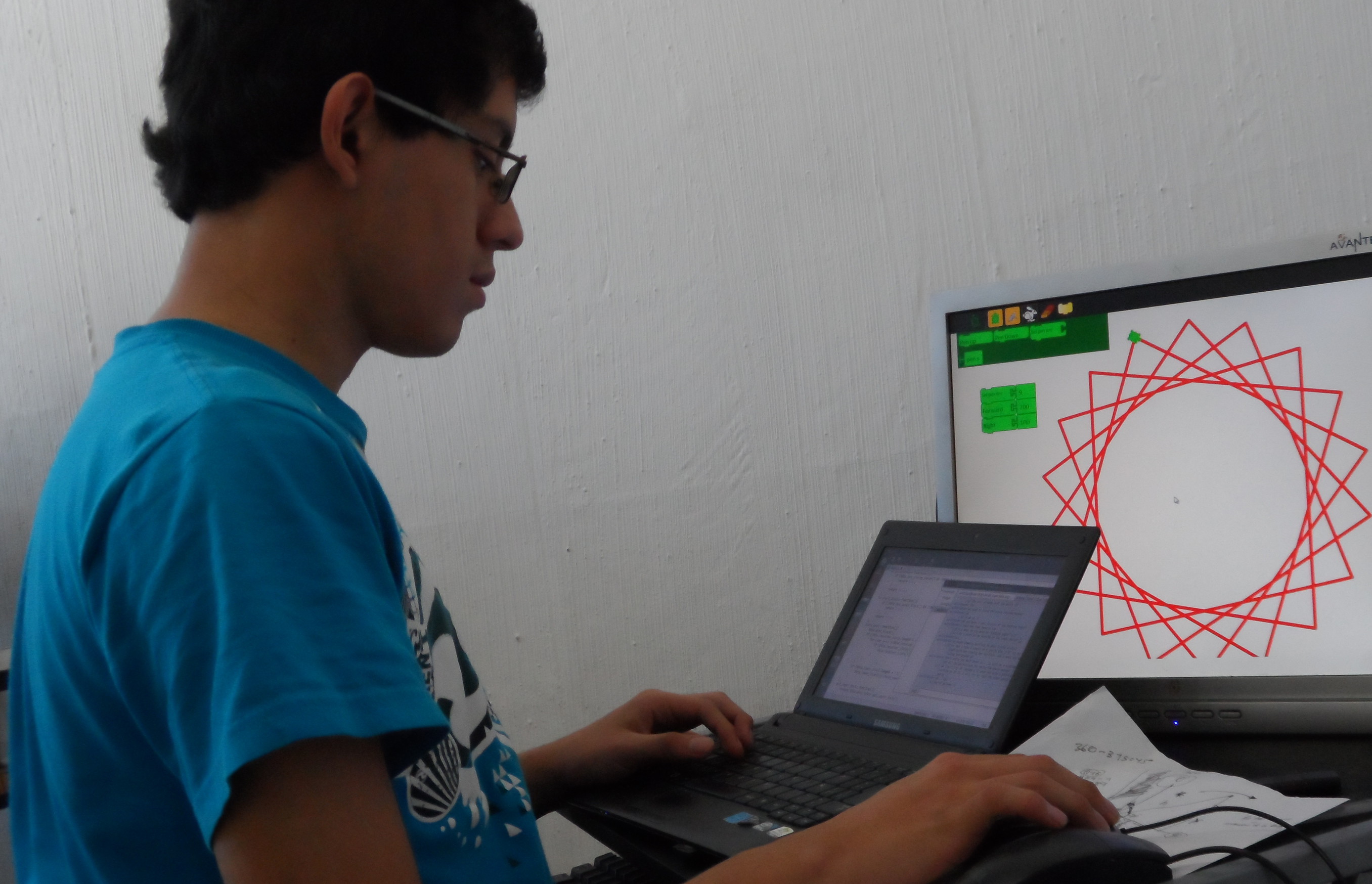
Jan 22 2014
CAMBRIDGE, Mass, January 22, 2014 - Sugar Labs(R), educational nonprofit provider of free and open-source learning software for children, is proud to recognize Google Code-In Contest [1,2] grand-prize winners Ignacio Rodríguez and Jorge Alberto Gómez López, who participated brilliantly in Google’s annual program for middle- and high-school students aged 13 to 17. Through GCI, Google invites open source organizations to mentor students who work on real programming and documentation tasks. Over 30 participants from more than a dozen countries — from Australia to Zimbabwe — mentored by Sugar Labs volunteers, helped to improve the Sugar Learning Platform used by over three million children worldwide. The winners will visit Google headquarters in Mountain View, California this spring.
Ignacio, who is 14 and lives in Canelones, Uruguay, grew up with Sugar and began participating in Sugar development three years ago. “The competition was a place to socialize and make friends!”, he says. “While I felt pressure, the community was there to help.”
Jorge, age 17, lives in Santa Tecla, El Salvador. “I never dreamed I would be working on an open source project; it was really fun to explore a whole new world, learn new tools, and most importantly, making new friends from different parts of the world—people that share the same objective and work as a community. I feel that I’m part of Sugar Labs, part of a big project, with friends and mentors.”
Rounding out the Sugar Labs list of finalists are Sai Vineet from Jamshedpur, India, Emil Dudev from Sofia, Bulgaria, and Sam Parkinson from Canberra, Australia (Sugar is widely deployed in Australian schools). Sam remarked, “Contributing to Sugar has, besides giving me experience in programming, shown me how fun programming collaboratively can be! And its also been fun working towards a common, meaningful goal.”
“GCI has made it evident that Sugar users are becoming the Sugar developers: Sugar not only gives them the license but also the means for developing their own tools for learning. In taking ownership, they become responsible,” said Walter Bender, founder of Sugar Labs. “We had a difficult time choosing our winners. Many participants completed multiple tasks. Ignacio was prolific, completing over 60 tasks, but all five of our finalists made fundamental improvements to the Sugar platform itself.”
José Miguel García, an education researcher from the Department of Educational Technology at Uruguay’s CODICEN-ANEP in Montevideo, observed: “For the second consecutive year a youth from Uruguay has won the competition. The nationwide Plan Ceibal, which delivers a laptop running Sugar to every child, achieves levels of equity in access to technology. These laptops, besides being used in formal education, enable young people to explore and develop activities, whether recreational, artistic, communication, programming, etc. These young people, guided and encouraged by their families, teachers and the Sugar community are reaching significant levels in the development of 21st century skills.”
Sugar Labs wishes to thank Google and in particular Bradley Kuhn, executive director of the Software Freedom Conservancy.
[1] http://developers.google.com/open-source/gci/
[2] http://google-opensource.blogspot.fr/2014/01/google-code-in-2013-drumroll-please.html


About Sugar Labs(R): Sugar Labs(R) is a volunteer-driven member project of Software Freedom Conservancy, a nonprofit corporation. Originally part of the One Laptop Per Child project, Sugar Labs coordinates volunteers around the world who are passionate about providing educational opportunities to children through the Sugar Learning Platform. Sugar Labs(R) is supported by donations and is seeking funding to accelerate development. For more information, please visit http://www.sugarlabs.org/press or contact pr@sugarlabs.org.
Sugar Labs(R) is a registered trademark of the Software Freedom Conservancy. Other names are trademarks of their respective owners.